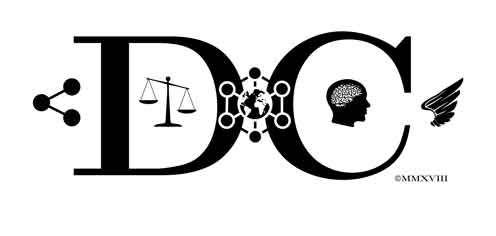The more I hear and read about discord, the more I’m reminded of the early days of the internet, and the early communities that grew up around it. I’m reminded of Melissa Anelli’s book: she charted the communities in the early 2000s that grew up around the website “the leaky cauldron”, a site that harnessed the raging interest in the world of Harry Potter. She talked about the common interests and desire to belong that helped shape those communities, and the conversations and lives that people began to share as they developed trust. What started out as a group of people having a laugh and sharing a space of play, turned into serious and abiding friendships and community.
I was one of the first generation of teens to live their lives across platforms. This was the mid-nineties, and I went first to an experimental high school, and then to a university running a program to encourage a more digital savvy existence for its students. When I reflect on what I see happening in the online world now, it’s often through my own lens of those youthful experiences. When I talk to young people now about what things were like then: about the hope for what the internet could accomplish; about the opportunity to speak to anyone, anywhere in the world and learn what was happening where they were; and the ways in which digital materials and media were shared free of charge, it’s sometimes difficult for them to imagine. A lot of that early hope seems incredibly naive in the face of how things have actually transpired. The ability to meet people anywhere in the world they take for granted, but they’re also astonished to learn how isolated we were from what was going on in other parts of the world and how we had few other sources of information than what was presented on the news. And, the notion of so much content being free seems impossible in a world where even their private information is a commodity to be bought and sold.
Despite the commodification of data, Discord offers a glimpse back to those early days of experimentation. Part of its charm seems to be the ways in which people can develop their own platforms, and create tailored bots and content, personalising their experience.
Back in 2000, when Miranda Instant Messenger allowed plug ins to customise your experience, there was a giddy excitement, as people started personalising their settings, and installing new options. You could make the program do whatever you wanted, and if you didn’t know how, you could ask someone else, or get someone to program a new extension for you. That sort of power is exciting, and makes you feel you can shape your own experience of the world, even if you can’t always shape the world itself.
But it’s not the nineties or 2000 anymore. Content is a commodity now. The scholar Shoshanna Zubofftraces surveillance capitalism to the dot com bust, and post 2002 our personal information and data became a lucrative business. Where there’s a community of interaction, there’s information to be processed, and money to be made.
This is my fear for discord, which already knows how to monetise.
In Greek mythology, it is the goddess of discord who starts the Trojan war, by dangling a coveted trinket for the assembled community to fight over. We would do well to learn from this warning. A community is easily torn apart, when people begin to feel that their personal gains are more important than their responsibilities to their friends and neighbours. Some understand that care of data is important, and a vital part of the trust between communities; to others, it is a commodity that offers an opportunity for financial gain at the expense of our community.
Whatever happens to discord now, it is faced with inevitable change. It has reached the point where its scale and success have prompted a point of metamorphosis. It is ready to float an IPO, or to be acquired by another company. Rumours of such interest from Microsoft have circulated the internet, and the sorts of valuations offered grant it legitimacy if it decides to take the route to publicly traded company.
Inevitably now, the platform will change. But the friendships, relationships, and communities can prove more robust. That is one thing, at least, that grants a sense of continuity with the past. People still need one another, and once a connection is formulated to a point of trust, it can become a lasting and rewarding good in our lives- provided that trust is respected and sustained.
If communities are to survive, they must hold fast to the ethical codes and behaviours – to their communal trust- that they have agreed to share. As discord faces its next chapter, it needs to remember that its most important features, are the people who use it. They are also the people who build it. And if they can build robust communities as well as digital environments, they can do whatever they want with or without a company. For world builders who respect community there are always other options.
Image by Gerd Altmann from Pixabay


